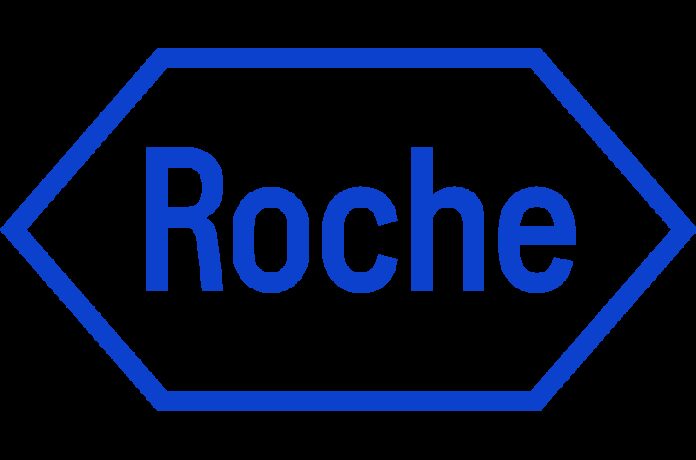- New trontinemab data continue to support rapid and deep, dose-dependent reduction of amyloid plaques in Phase Ib/IIa Brainshuttle™ AD study
- Data on the Elecsys® pTau181 plasma test demonstrate potential to accurately rule out amyloid pathology, one of the hallmarks of Alzheimer’s disease
- Roche will initiate a Phase III programme for trontinemab later this year based on totality of data
Basel, 3 April 2025 – Roche (SIX: RO, ROG; OTCQX: RHHBY) announced today that new data were presented at the AD/PD 2025 International Conference on Alzheimer’s and Parkinson’s Diseases in Vienna, Austria. Highlights included presentations from the ongoing trontinemab Phase Ib/IIa Brainshuttle™ AD study demonstrating dose-dependent rapid amyloid depletion from the brain and the potential of the Elecsys® pTau181 plasma test to rule out amyloid pathology. Roche also announced the initiation of a Phase III programme for trontinemab, which is expected later this year.
“We are pleased with the progress across our Alzheimer’s portfolio as we move ahead with a Phase III trontinemab programme and continue to expand our diagnostic solutions,” said Levi Garraway, M.D., Ph.D., Roche’s Chief Medical Officer and Head of Global Product Development. “Well over 55 million people worldwide are living with dementia, of which around 70% have Alzheimer’s. Moreover, up to three-quarters of people experiencing symptoms of Alzheimer’s remain undiagnosed. This growing population needs more accurate, less invasive diagnostic approaches paired with effective disease-modifying treatments to slow neurodegeneration as early as possible.”
Trontinemab
Preliminary results for trontinemab from 114 participants in the 1.8 or 3.6 mg/kg double-blind period suggest rapid and deep, dose-dependent reduction of amyloid plaques in the brain as measured by amyloid positron emission tomography (PET). Trontinemab reduced amyloid levels below the 24 centiloid threshold in 81% of participants (n=21/26) in the 3.6 mg/kg dose group after 28 weeks. Based on data in the field, both the speed of amyloid lowering, and the ability to lower below the amyloid positivity threshold early on, are important to achieve clinically meaningful benefit in early Alzheimer’s disease. These data were reinforced by early and significant reductions in fluid biomarkers of Alzheimer’s disease including total tau, phosphorylated Tau (pTau)181, pTau217 and neurogranin measured in cerebrospinal fluid (CSF) and plasma.
Trontinemab continues to show a favourable safety and tolerability profile. Amyloid-related imaging abnormalities-edema/effusion (ARIA-E) were observed in <5% (n=3/114) of participants (blinded data), which were radiographically mild, and there was one case associated with mild symptoms.
Trontinemab is currently being studied in the Phase Ib/IIa Brainshuttle AD study assessing the safety, tolerability, pharmacokinetics (PK) and pharmacodynamics (PD) of trontinemab in participants with Alzheimer’s disease.
Diagnostics
Results from 604 participants in a multicentre study of Roche’s Elecsys pTau181 plasma test were presented, demonstrating its potential to accurately rule out amyloid pathology, a hallmark of Alzheimer’s disease, in people with cognitive impairment.
The Elecsys pTau181 test is a minimally invasive blood test that measures pTau181 protein in plasma. By ruling out those without signs of amyloid pathology, the test can help to avoid unnecessary testing using CSF or PET, which are more invasive and often come with long waiting times and high costs. This can result in further delays to diagnosis and cost to healthcare systems. Roche anticipates tests being available in Europe by late 2025, with the U.S. following after.
Other activities at the AD/PD 2025 International Conference
Parkinson’s disease
Results from the Phase IIb PADOVA study were presented for the first time, investigating prasinezumab in 586 people with early-stage Parkinson’s disease while on stable symptomatic treatment. Although the study missed its primary endpoint, the totality of data suggest possible benefit in early-stage Parkinson’s disease. Prasinezumab showed potential clinical efficacy in the primary endpoint of time to confirmed motor progression with a hazard ratio (HR)=0.84 [0.69-1.01] and p=0.0657, missing statistical significance. In a pre-specified analysis, the effect of prasinezumab was more pronounced in the population treated with levodopa (75% of participants), HR=0.79 [0.63-0.99]. Consistent positive trends across multiple secondary and exploratory clinical endpoints were also observed, in addition to a potential biological effect of prasinezumab on MRI biomarkers. Prasinezumab continues to be well tolerated and no new safety signals were observed in the study. Given the high level of unmet need for these patients, Roche is further evaluating study data to determine next steps.
About Roche in Neurology
Neurology is a major focus of research and development at Roche. Our goal is to pursue groundbreaking science to develop new diagnostic solutions and treatments that help improve the lives of people with chronic and potentially devastating diseases. Roche is committed to using its diagnostic and pharmaceutical capabilities in an effort to better detect and treat neurological diseases as early as possible, and working toward preventing them altogether.
Roche is investigating more than a dozen medicines for neurological disorders, including Alzheimer’s disease, multiple sclerosis, spinal muscular atrophy, Duchenne muscular dystrophy, Parkinson’s disease, neuromyelitis optica spectrum disorder and Huntington’s disease. Roche diagnostics offers one of the broadest portfolio of solutions, including approved and investigational tools, such as digital and blood-based tests and CSF assays, aiming to more effectively detect, diagnose and monitor the disease. Together with our partners, we are committed to pushing the boundaries of scientific understanding to solve some of the most difficult challenges in neurology today.
About trontinemab
Trontinemab is an investigational Brainshuttle™ bispecific 2+1 amyloid-beta antibody specifically engineered for enhanced access to the brain to enable rapid reduction of amyloid in people with Alzheimer’s disease. Trontinemab is designed for the efficient transport across the blood-brain barrier to target aggregated forms of amyloid beta and remove amyloid plaques in the brain.
The uniqueness of trontinemab is based on Roche’s proprietary Brainshuttle technology combining an amyloid beta-binding monoclonal antibody with a transferring receptor (TfR1) shuttle module. As a result, high central nervous system (CNS) exposure of trontinemab may be achieved at low doses, leading to a rapid and deep amyloid clearance. Due to its unique properties, trontinemab might unlock the full potential of disease-modifying monoclonal antibodies by effectively penetrating the brain and potentially leading to slowing of disease progression.
About prasinezumab
Prasinezumab is an investigational monoclonal antibody designed to selectively bind aggregated alpha-synuclein (α-syn) and reduce neuronal toxicity. By targeting the build-up of α-syn protein in the brain, prasinezumab can potentially prevent further accumulation and spreading between cells, thereby slowing down the progression of the disease. The evidence supporting targeting α-syn aggregates as a mechanism of action in Parkinson’s disease is based on a wide range of scientific evidence in the field.
Prasinezumab is currently being assessed in ongoing open-label extensions of the Phase II PASADENA and Phase IIb PADOVA studies. The safety database for prasinezumab consists of data from more than 900 Parkinson’s disease study participants that have been treated with the investigational medicine, including more than 500 who were treated over 1.5-5 years.
Roche entered into a Licensing, Development, and Commercialisation agreement with Prothena in December 2013 to develop and commercialise monoclonal antibodies targeting α-syn, such as prasinezumab, for the treatment of Parkinson’s disease.
About Roche
Founded in 1896 in Basel, Switzerland, as one of the first industrial manufacturers of branded medicines, Roche has grown into the world’s largest biotechnology company and the global leader in in-vitro diagnostics. The company pursues scientific excellence to discover and develop medicines and diagnostics for improving and saving the lives of people around the world. We are a pioneer in personalised healthcare and want to further transform how healthcare is delivered to have an even greater impact. To provide the best care for each person we partner with many stakeholders and combine our strengths in Diagnostics and Pharma with data insights from the clinical practice.
For over 125 years, sustainability has been an integral part of Roche’s business. As a science-driven company, our greatest contribution to society is developing innovative medicines and diagnostics that help people live healthier lives. Roche is committed to the Science Based Targets initiative and the Sustainable Markets Initiative to achieve net zero by 2045.
Genentech, in the United States, is a wholly owned member of the Roche Group. Roche is the majority shareholder in Chugai Pharmaceutical, Japan.
For more information, please visit www.roche.com.
All trademarks used or mentioned in this release are protected by law.
Roche Global Media Relations
Phone: +41 61 688 8888 / e-mail: [email protected]
| Hans Trees, PhD Phone: +41 79 407 72 58 |
Sileia Urech Phone: +41 79 935 81 48
|
| Nathalie Altermatt Phone: +41 79 771 05 25 |
Lorena Corfas Phone: +41 79 568 24 95
|
| Simon Goldsborough Phone: +44 797 32 72 915 |
Karsten Kleine Phone: +41 79 461 86 83
|
| Nina Mählitz Phone: +41 79 327 54 74 |
Kirti Pandey Phone: +49 172 6367262
|
| Yvette Petillon Phone: +41 79 961 92 50 |
Dr Rebekka Schnell Phone: +41 79 205 27 03 |
Roche Investor Relations
| Dr Bruno Eschli Phone: +41 61 68-75284 e-mail: [email protected] |
Dr Sabine Borngräber Phone: +41 61 68-88027 e-mail: [email protected]
|
| Dr Birgit Masjost Phone: +41 61 68-84814 e-mail: [email protected] |
Investor Relations North America
| Loren Kalm Phone: +1 650 225 3217 e-mail: [email protected] |
Attachment
- 20250403_MR_Roche at ADPD_en






